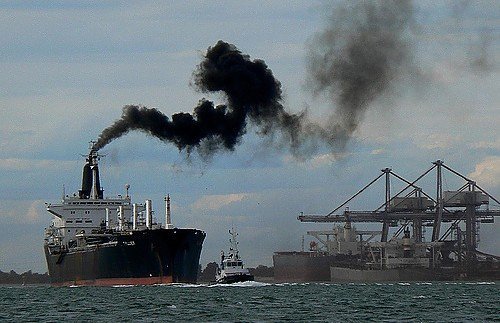ICS says shipping has reduced its CO2 emissions ‘far more’ than most countries

The International Chamber of Shipping has struck back in the war of statistics ahead of crucial climate talks in Paris in a week’s time.
The United Nations (UNFCCC) has published a Synthesis Report analysing the impact of the pledges made by 146 nations to reduce CO2 emissions in advance of next week’s Climate Change Conference in Paris.
The International Chamber of Shipping (ICS) claims the mandatory CO2 reduction measures already adopted by the International Maritime Organization (IMO), combined with the aggressive fuel efficiency measures being taken by merchant ships worldwide, will proportionately deliver far more ambitious CO2 reductions than the pledges so far made by governments.
The UNFCCC says governments’ commitments overall should reduce CO2 emissions per capita by just 5% in 2030 compared to 2010.
“Shipping has already reduced its total CO2 emissions by more than 10% (2007- 2012) despite continuing growth in maritime trade, and reduced CO2 per tonne of cargo transported one kilometre (tonne-km being a comparable metric to emissions per capita) by around 20% in the past 10 years,” ICS said in a statement yesterday.
For the future, IMO rules already adopted require all ships built after 2025 to be at least 30% more fuel efficient. As its contribution to the United Nations 2 degree centigrade climate change goal, shipping is committed to reducing CO2 per tonne-km by at least 50% before 2050, ICS said.
Earlier this week three NGOs issued a release suggesting shipping could be responsible for 17% of global CO2 emissions in 2050 if left unregulated.
Shipping is braced for a tough time at the upcoming Paris climate talks. Splash will be reporting live from the event.
